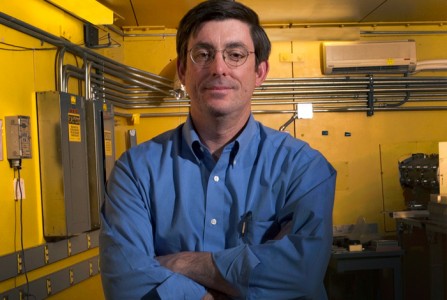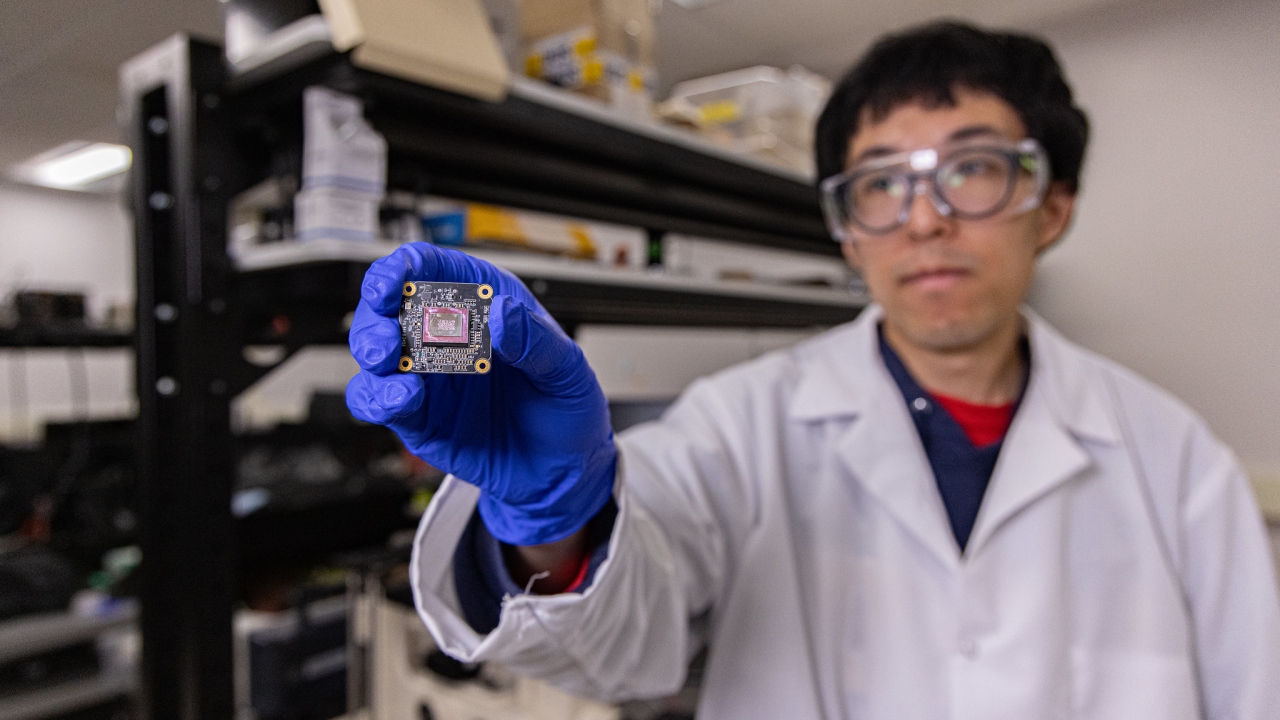Los Alamos’ John L. Sarrao Speaks at UC Davis
John L. Sarrao, the Associate Director for Theory, Simulation and Computation at the Los Alamos National Laboratory, spoke at the UC Davis College of Engineering on Monday, May 4, 2015.

Sarrao’s presentation, “From Quanta to the Continuum: Opportunities for Mesoscale Science,” explained how the greatest scientific advances of the previous decade, particularly at the nanoscale, are ripe for exploitation. Seizing this opportunity will require mastering the mesoscale, where classical, quantum and nanoscale science meet. It has become clear, in many important areas, that the functionality critical to macroscopic behavior begins to manifest not at the atomic or nanoscale, but at the mesoscale, where defects, interfaces and non-equilibrium structures are the norm. The mesoscale therefore represents a “discovery laboratory” for finding new science, a self-assembly foundry for creating new functional systems, and a design engine for new technologies.
Such innovation could dramatically increase our supply of clean energy, while jump-starting our entire economy.
Sarrao completed his undergraduate degree in physics at Stanford University, then earned his master’s degree, also in physics, at UCLA. He received his doctorate in physics from UCLA in 1993, based on thesis work performed at the Los Alamos National Laboratory (LANL). He then spent four years in postdoctoral research at UC San Diego and the National High Magnetic Field Laboratory in Tallahassee, Fla.
He returned to LANL in 1997, as a technical staff member in experimental condensed matter physics. He rose through a variety of management positions, including Division Leader of Materials Physics and Applications, and eventually became Director of the Office of Science Programs, and of MaRIE (Matter-Radiation Interactions in Extremes), LANL’s flagship experimental facility, which was designed to revolutionize the understanding of materials in extreme environments and conditions.
He was promoted to his current position in March 2013, where he leads the Laboratory’s efforts to apply science-based predictions to existing and emerging national security missions. Theory, Simulation and Computation is a roughly 700-person entity that spans LANL’s Theoretical; Computer, Computational and Statistical Sciences; and High-Performance Computing organizations.
Sarrao’s primary research interest is in the synthesis and characterization of correlated electron systems, particularly actinide materials. He won the 2004 LANL Fellows Prize for Research, in part for his discovery of the first plutonium superconductor, which revolutionized the field of actinide materials research. This discovery, coupled with his other breakthroughs in new materials and new physics, have made an enduring worldwide impact in condensed-matter physics. His work has generated considerable excitement in the materials physics community, and research efforts around the world have been re-directed to build upon his discoveries.
He most recently received the U.S. Department of Energy’s 2013 E.O. Lawrence Award, “for the discovery and study of new materials, especially those based on plutonium, and for advancing the understanding of unconventional magnetic and superconducting states in strongly correlated f-electron condensed matter systems.”
The LANL Theory, Simulation and Computation Directorate is central to the Laboratory’s ability to deliver new ideas, concepts and methodologies to improve the fidelity, reliability and usability of scientific tools that guide and interpret experiments, and provide prediction and control for complex phenomena and systems. The organization supports current and emerging national security missions, such as nuclear weapon stewardship, threat reduction, intelligence analysis, homeland security, energy, infrastructure, nanotechnology, biological science and other science frontiers, from biophysics to astrophysics.




